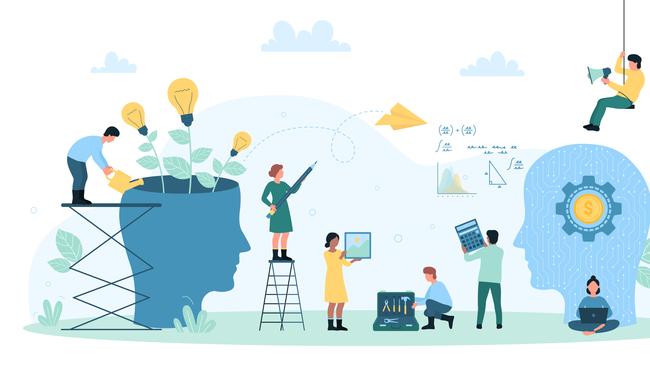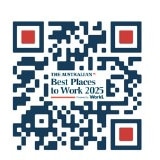Employee happiness is the key to competitive edge
Companies that prioritise employee engagement see a stronger bottom line and build a workforce that’s motivated, loyal, and better equipped to face challenges, writes Lord Mark Price

Each year the company I founded over seven years ago, WorkL, publishes a Global Workplace Report, taking an in-depth look at the state of the global workplace, and presents a comprehensive global analysis of employee happiness and the critical factors influencing it.
As the leading global employee experience platform helping individuals to work happier and organisations to improve commercial performance, the report includes data from WorkL’s database of over 400,000 individual entries globally from more than 100,000 organisations.
On a personal level, I have more than 40 years of experience in business, and my focus is now on making employees happier at work to drive commercial success within organisations.
Here is a summary of key take-outs for workplaces in Australia over the past year.
Globally, this year’s report reflects a growing workforce demand for better pay, flexibility, mental health support, and career development. These findings suggest employers must adapt to shifting priorities in order to stay competitive and retain talent in a dynamic global market.
Workplace happiness is essential for economic success and productivity. Companies that prioritise employee wellbeing and engagement not only see a stronger bottom line but also build a workforce that’s motivated, loyal, and better equipped to face challenges.
Flexibility
More than 4000 respondents globally commented in 2024 that flexibility would improve their working lives.
While often related to working hours, flexibility means different things to different people: flexibility in which days are worked, hours and from where, all come into play.
Looking at where people want to work, employees in Australia want predominantly to work from home.

This is also a global trend but one that has taken priority for those working in Australia.
If we look at workplace flexibility in terms of hours, we can see for employees, Australia is the lowest-scoring country in the world, scoring just 73 per cent when asked if they were happy with their working hours.
The commute is a big deal for employees and takes up time, which is not included in working hours. Almost 3000 respondents asked for increased opportunities to work from home and a reduction in travel time to support a better worklife balance when answering “What three things would make your working life easier?”, generally considering the time spent commuting.
The report notes a marked shift towards remote and hybrid work arrangements, with flexibility emerging as a crucial factor in workplace happiness.
Women are more likely than men (64 per cent v 36 per cent) to cite flexibility as essential to their job satisfaction, with high demand for flexibility within the health and social care sectors.

The percentage of those seeking more flexibility in general also increases with age before beginning to decline at 65-plus. This is most likely due to caring responsibilities increasing and then dropping off as children fly the nest.
Empowerment
With flexibility comes empowerment. When working from home, employees are trusted to get their tasks completed on time.
This autonomy over their working life increases the feeling of empowerment at work – a key step to thriving and being happy at work.
Australia’s highest score of the Six Steps is Empowerment at 73 per cent – just 1 per cent point lower than the global average.
This shows employees are feeling empowered in the workplace.
The role of pay
Although the focus on pay in WorkL’s 2023 report was largely influenced by the global cost-of- living crisis, 2024 continues to see a strong correlation between fair pay and employee satisfaction. The Philippines leads in pay satisfaction (79 per cent), while New Zealand scores lowest (66 per cent).
In Australia, the “engagement and pay satisfaction gap” is notable, with employees rating their happiness at 71 per cent, with pay satisfaction at only 69 per cent.
This suggests compensation is an area in need of attention, as fair pay remains a top contributor to workplace happiness and retention.
Mental health and purpose at work
Mental health has surfaced as a pivotal area of concern, especially among younger employees (ages 25-34) in Australia, nearly half of whom identified it as a top priority.
The report calls for employers to take proactive measures in supporting employee wellbeing.
The full report can be viewed by using this link: https://workl.com/business/global-workplace-report-2024-powered-by-workl/
I urge employers to take the time to read and assess what the results mean for your business and employees. Only by addressing workplace problems can we solve the issue of disengagement with employees, which ultimately impacts the bottom line.
Lord Mark Price is the author of Happy Economics and founder of WorkL.
-
To enter The Australian Best Places to Work 2025 awards, use the QR code on this page or go to:
https://workl.com/business/workplace-awards/the-australian-au/
Surveys must be completed by May 31, 2025.


